Abstract
The tetracosactrin stimulation test was used to assess the adrenal responsiveness of 22 very low birthweight babies who had received a three week course of dexamethasone for the treatment of bronchopulmonary dysplasia. Five babies were studied in detail with blood samples taken for cortisol concentrations at 30 minute intervals for four hours. The tests were performed before, during, and after treatment with dexamethasone. A distinctive pattern of cortisol response to tetracosactrin was found among these babies, which was quite unlike that found in older children and adults. Using our pretreatment results as control data we conclude that there is undoubtedly evidence of modest suppression of the adrenal axis during dexamethasone treatment, although there is considerable recovery one month after stopping steroids. Basal cortisol concentrations, however, remained low in some cases, which may indicate the need for temporary corticosteroid replacement during severe illness.
Full text
PDF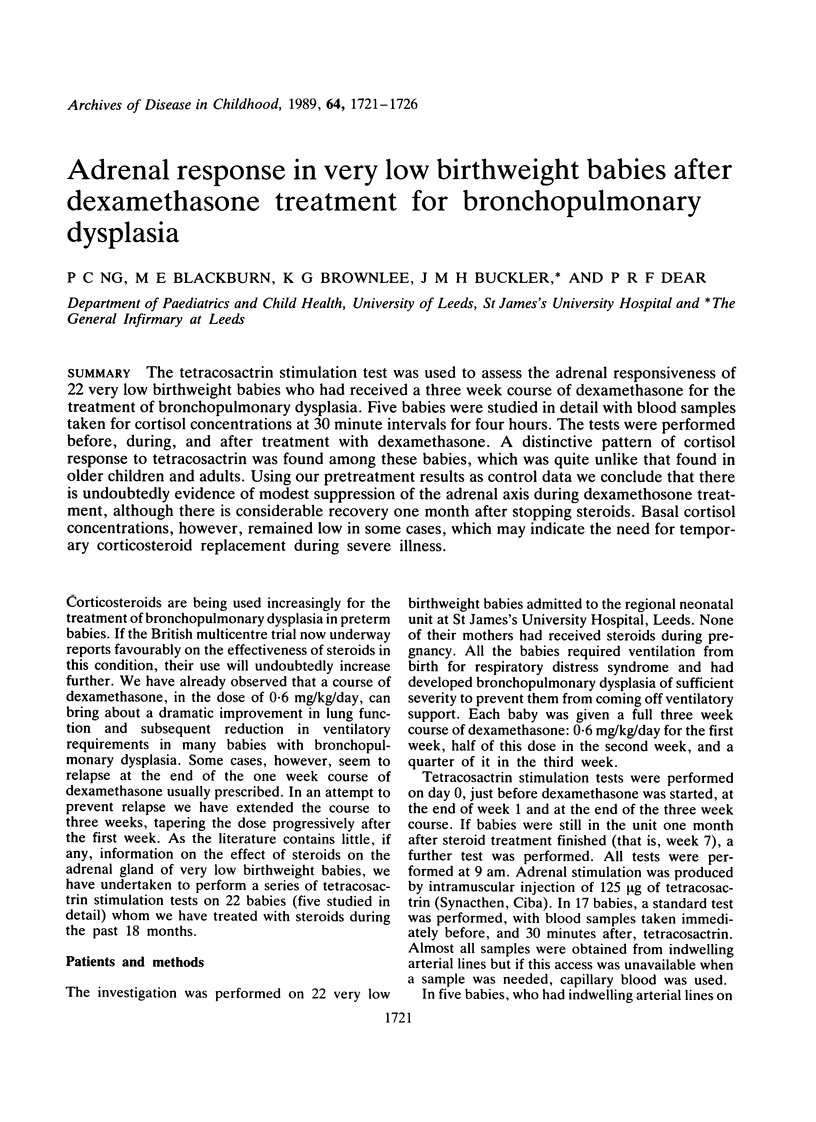
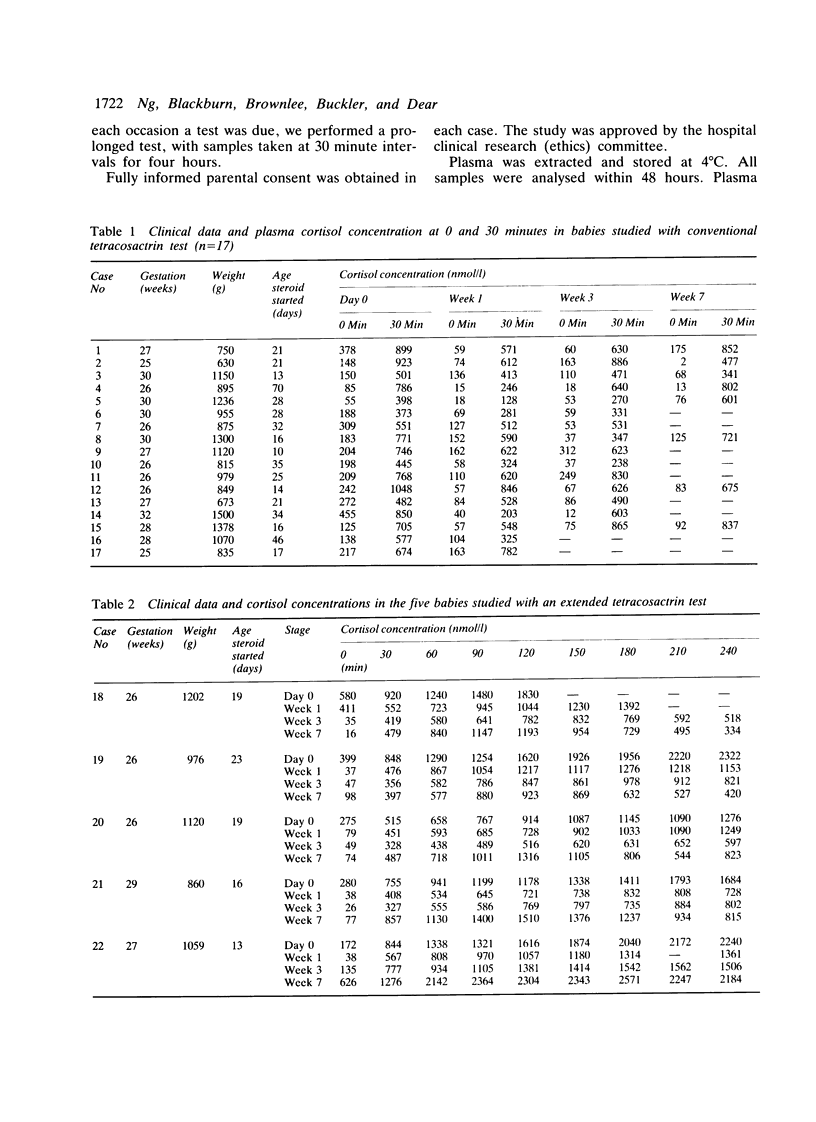
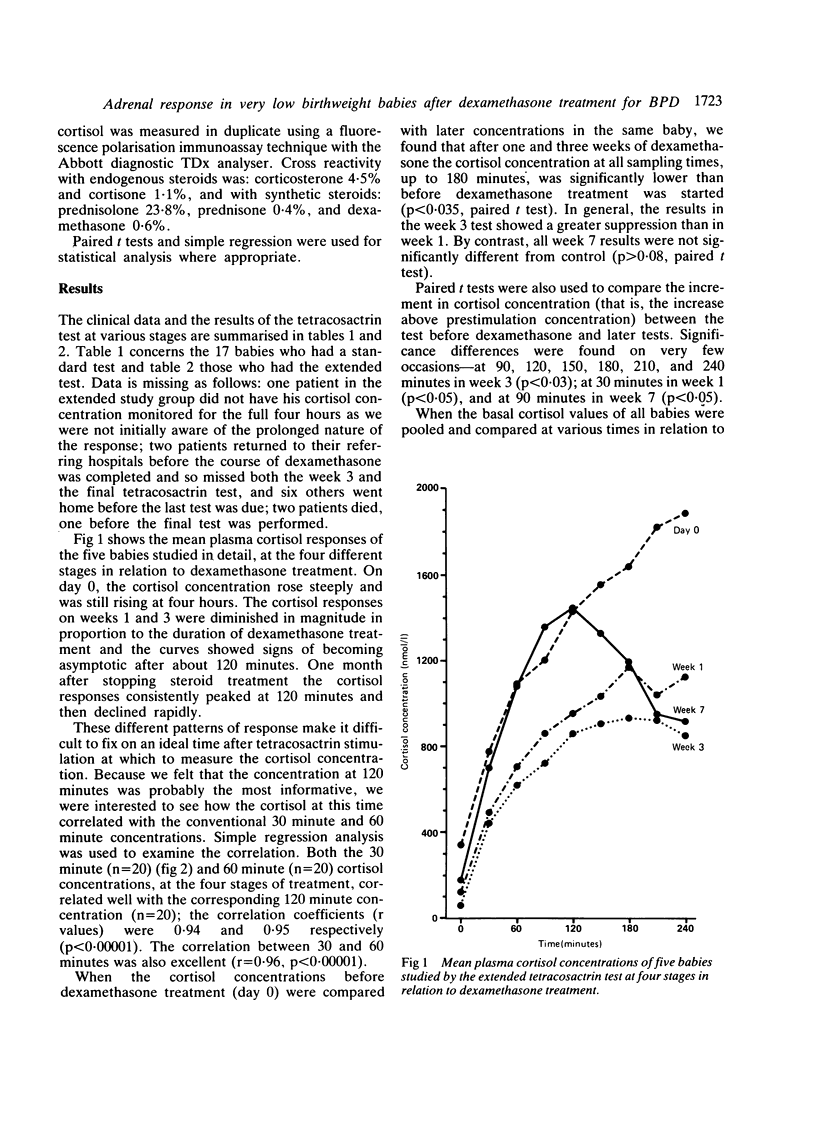
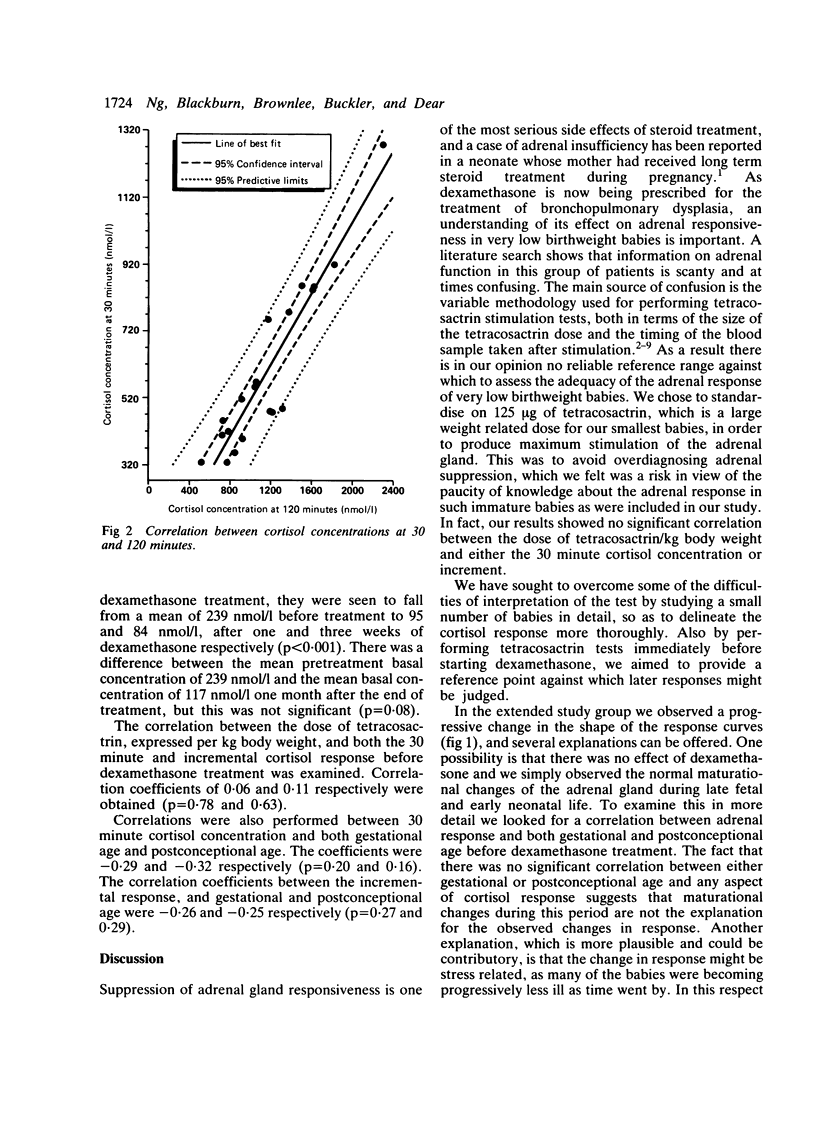
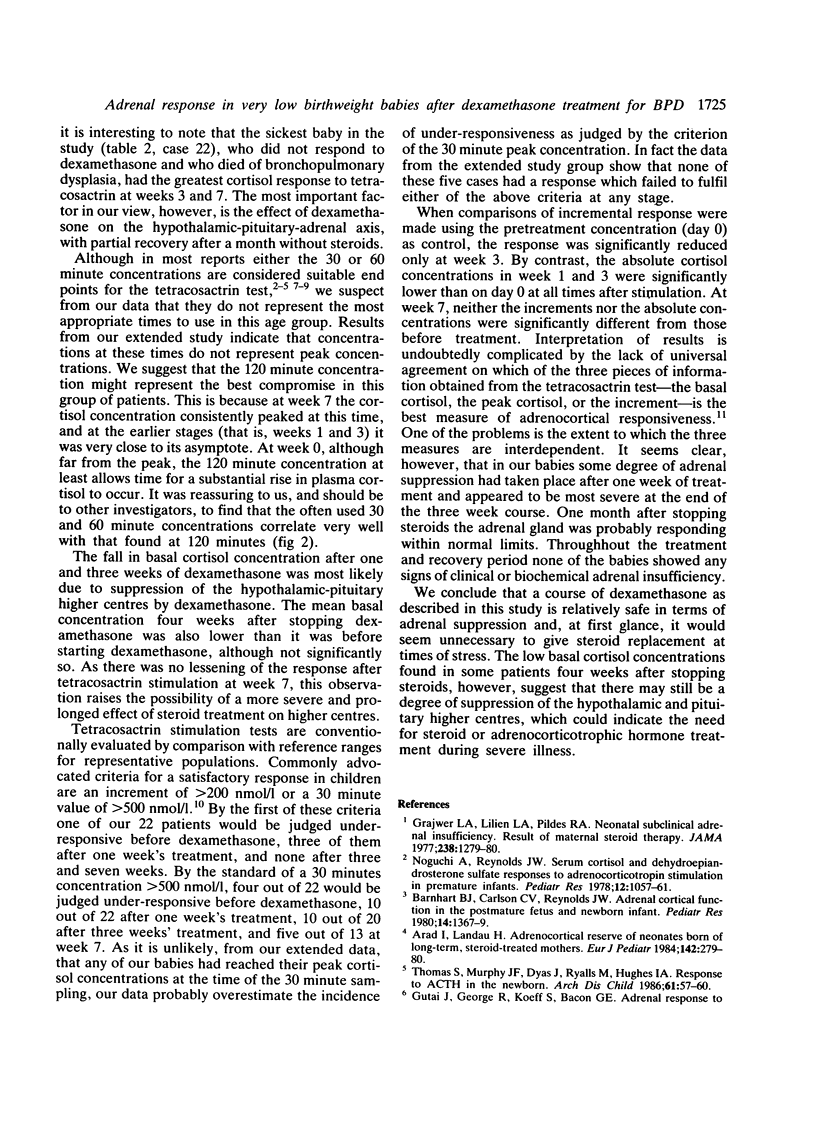
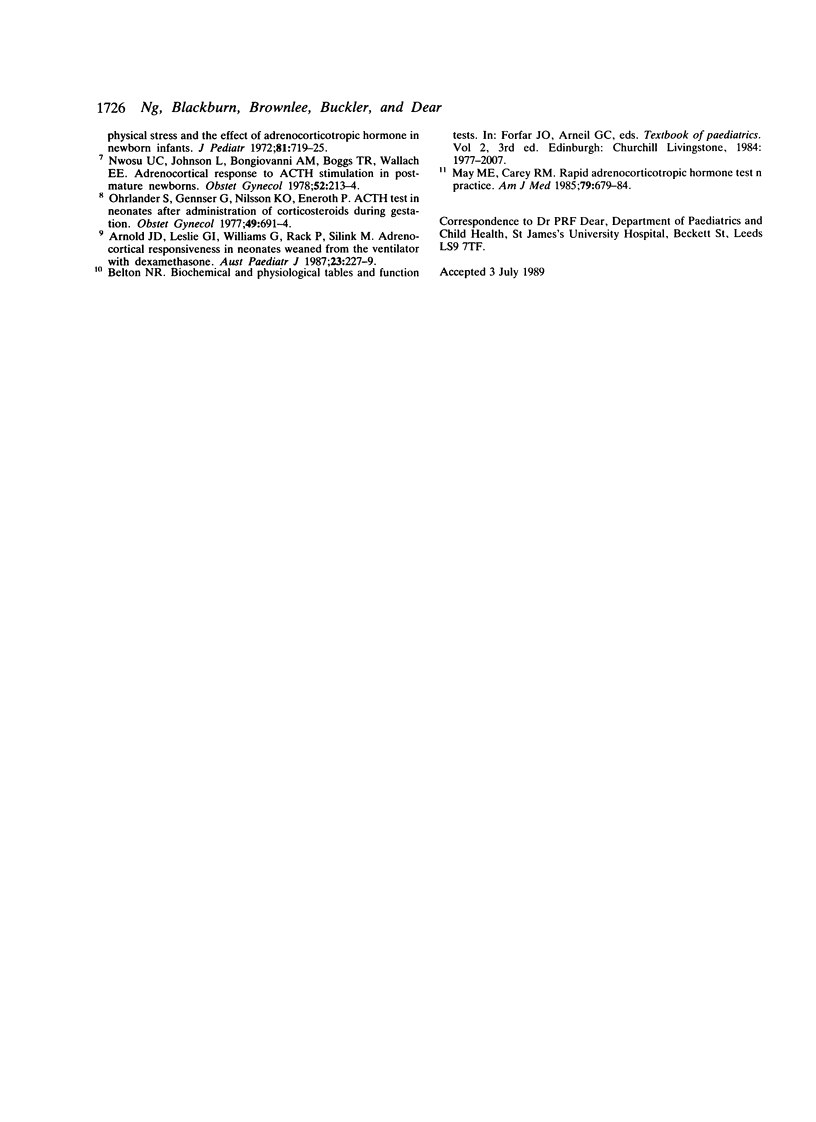
Selected References
These references are in PubMed. This may not be the complete list of references from this article.
- Arad I., Landau H. Adrenocortical reserve of neonates born of long-term, steroid-treated mothers. Eur J Pediatr. 1984 Sep;142(4):279–280. doi: 10.1007/BF00540252. [DOI] [PubMed] [Google Scholar]
- Arnold J. D., Leslie G. I., Williams G., Rack P., Silink M. Adrenocortical responsiveness in neonates weaned from the ventilator with dexamethasone. Aust Paediatr J. 1987 Aug;23(4):227–229. doi: 10.1111/j.1440-1754.1987.tb00255.x. [DOI] [PubMed] [Google Scholar]
- Barnhart B. J., Carlson C. V., Reynolds J. W. Adrenal cortical function in the postmature fetus and newborn infant. Pediatr Res. 1980 Dec;14(12):1367–1369. doi: 10.1203/00006450-198012000-00021. [DOI] [PubMed] [Google Scholar]
- Grajwer L. A., Lilien L. D., Pildes R. S. Neonatal subclinical adrenal insufficiency. Result of maternal steroid therapy. JAMA. 1977 Sep 19;238(12):1279–1280. [PubMed] [Google Scholar]
- Gutai J., George R., Koeff S., Bacon G. E. Adrenal response to physical stress and the effect of adrenocorticotropic hormone in newborn infants. J Pediatr. 1972 Oct;81(4):719–725. doi: 10.1016/s0022-3476(72)80092-1. [DOI] [PubMed] [Google Scholar]
- May M. E., Carey R. M. Rapid adrenocorticotropic hormone test in practice. Retrospective review. Am J Med. 1985 Dec;79(6):679–684. doi: 10.1016/0002-9343(85)90517-0. [DOI] [PubMed] [Google Scholar]
- Noguchi A., Reynolds J. W. Serum cortisol and dehydroepiandrosterone sulfate responses to adrenocorticotropin stimulation in premature infants. Pediatr Res. 1978 Nov;12(11):1057–1061. doi: 10.1203/00006450-197811000-00006. [DOI] [PubMed] [Google Scholar]
- Nwosu U. C., Johnson L., Bongiovanni A. M., Boggs T. R., Wallach E. E. Adrenocortical response to ACTH stimulation in postmature newborns. Obstet Gynecol. 1978 Aug;52(2):213–214. [PubMed] [Google Scholar]
- Ohrlander S., Gennser G., Nilsson K. O., Eneroth P. ACTH test to neonates after administration of corticosteroids during gestation. Obstet Gynecol. 1977 Jun;49(6):691–694. [PubMed] [Google Scholar]
- Thomas S., Murphy J. F., Dyas J., Ryalls M., Hughes I. A. Response to ACTH in the newborn. Arch Dis Child. 1986 Jan;61(1):57–60. doi: 10.1136/adc.61.1.57. [DOI] [PMC free article] [PubMed] [Google Scholar]


